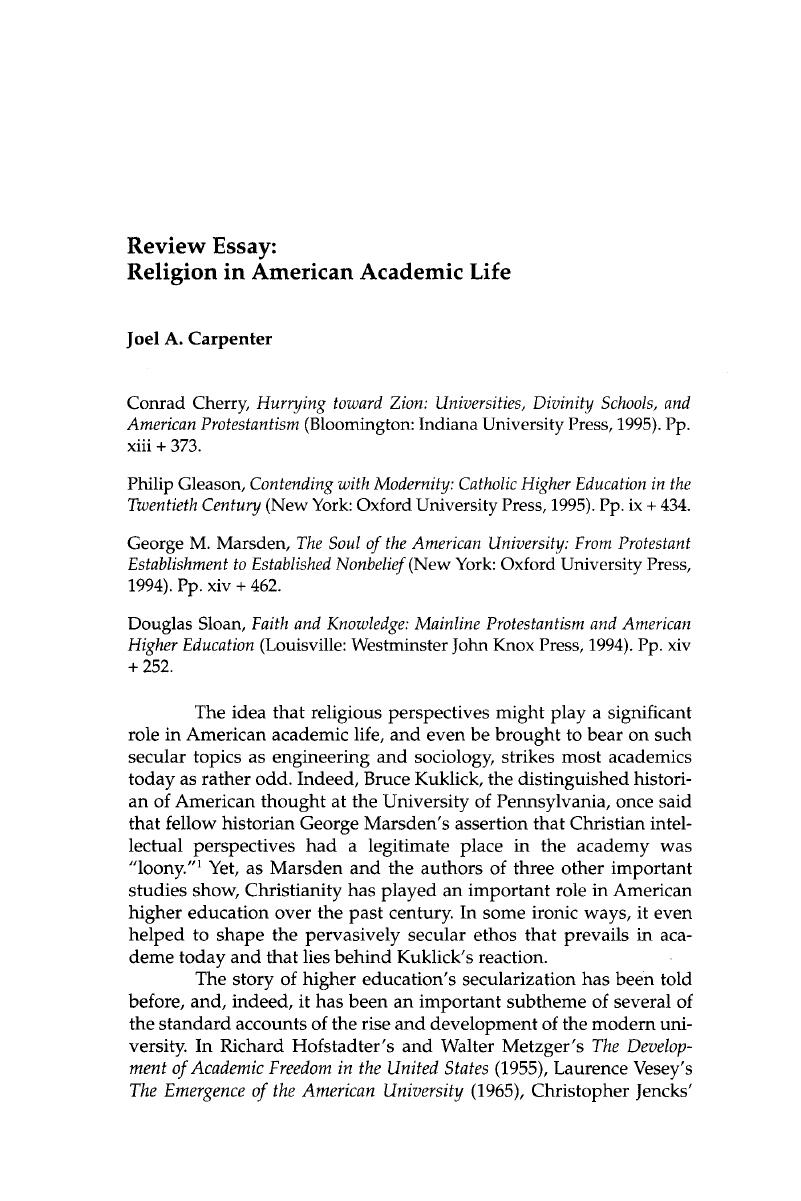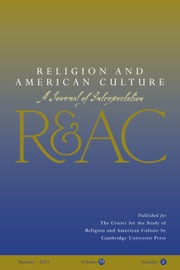Article contents
Review Essay: Religion in American Academic Life
Published online by Cambridge University Press: 18 June 2018
Abstract

- Type
- Review Article
- Information
- Copyright
- Copyright © Center for the Study of Religion and American Culture 1998
References
Notes
1. Bruce Kuklick is quoted in Carolyn J. Mooney, “Devout Professors on the Offensive,” Chronicle of Higher Education, May 4, 1994, A-18.
2. Moore, R. Laurence, “Insiders and Outsiders in American Historical Narrative and American History,” American Historical Review 87 (April 1982): 406.Google Scholar
3. In his more recent work, The Outrageous Idea of Christian Scholarship (New York: Oxford University Press, 1997), Marsden addresses the issue of what constitutes a Christian perspective in scholarship and what contributions such work might make in contemporary academe and public discourse.
4. Hughes, Richard T. and Adrian, William B., eds., Models for Christian Higher Education: Strategies for Success in the Twenty-First Century (Grand Rapids: Eerdmans, 1997).Google Scholar This compendium provides essays on the Roman Catholic, Lutheran, Reformed, Mennonite, Interdenominational Evangelical, Wesleyan/Holiness, Baptist, and Restorationist traditions in higher education.
5. Alan Wolfe, “Higher Learning,” Lingua Franca, March/April 1996, 70-77; Alan Wolfe, “A Welcome Revival of Religion in the Academy,” Chronicle of Higher Education, September 19, 1997, B4-5.
6. Ribuffo, Leo P., “God and Man at Harvard, Yale, Princeton, Berkeley, Etc.,” Reviews in American History 23 (March 1995): 170-75.CrossRefGoogle Scholar
7. Samuel P. Huntington first laid out this theory in “The Clash of Civilizations?” Foreign Affairs 72 (Summer 1993): 22-49; then, in fuller fashion, in The Clash of Civilizations and the Remaking of World Order (New York: Simon and Schuster, 1996). See also his The Third Wave: Democratization in the Late Twentieth Century (Norman, Okla.: University of Oklahoma Press, 1993), in which he discusses the central role of reformist Christian movements in democratizing trends in Latin America, the Philippines, and Africa.
- 1
- Cited by




